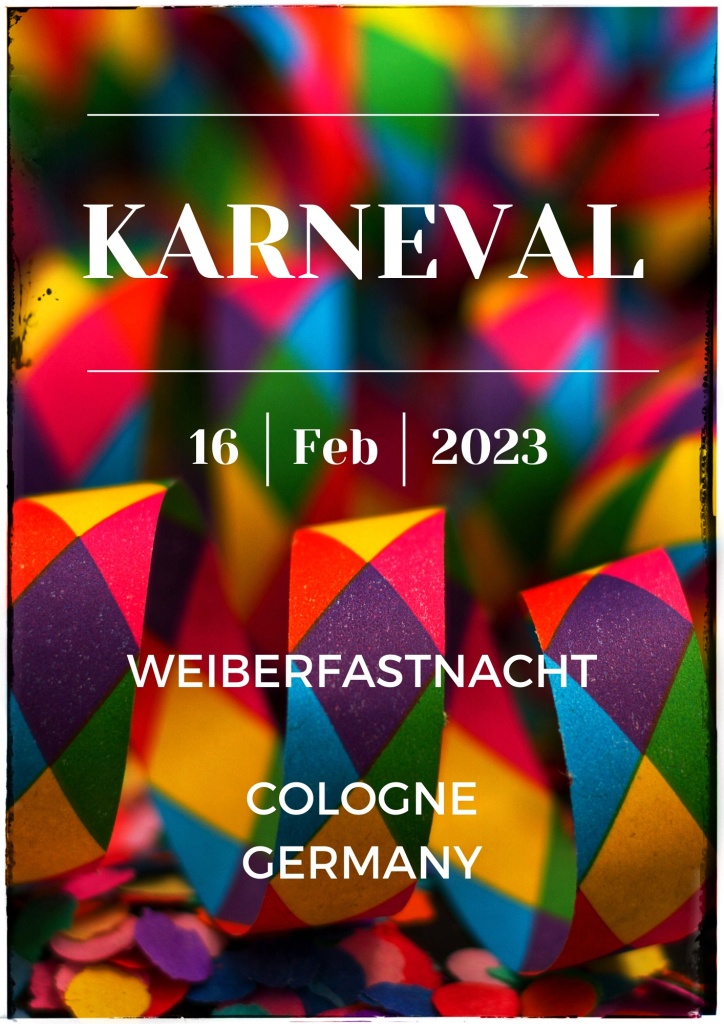KarateDo Ein Sport für jede Generation…!?!
Warum gerade Karate?
Die vollkommen falsche Vorstellung, Karate orientiere sich an Kinofiguren wie Karate-Kid,
Bruce Lee, o.ä. soll immer noch weit verbreitet sein.
Die Medien pflegen dieses negative Bild seit Jahren.
Dies zeigt, dass leider nur sehr wenig Menschen etwas von Kampfsport und speziell vom
Karate-Do verstehen.
Kein Wunder also, dass viele Menschen Karate als brutal, abwegig und unfair einstufen.
Und es ist demnach auch nur ein kleiner Schritt zu der Annahme, dass ein Karatheka
diesen Sport aus zweifelhaften Motiven heraus betreibt und wohlmöglich offen oder
potentiell desozial und brutal erscheint.
Man braucht wohl kaum zu sagen, dass eine solche Schlussfolgerung reiner Unwissenheit
entspringt, ja zuweilen oft böswillig verbreitet wird, und somit der sehr großen Zahl
bemühter und hochmotivierter Sportler unendlich schadet.
Zweifellos kann man
Karatetechniken missbrauchen.
Das gleiche jedoch kann man auch von Techniken anderer Sportarten sagen.
So ist zum Beispiel ein hinterhältiges, bewusst in die Beine des Gegenspielers
ausgeführtes Foul, beim allgemein so beliebten Massensport Fußball, wirklich keine Seltenheit.
Oder betrachten wir einmal das „sportliche“ Verhalten der meisten Eishockey Spieler.
Genau so absurd ist die Folgerung, dass ein Karatheka außerhalb seines Dojo sein Wissen
und Können negativ verwertet oder er sich anders gibt als ein „normaler“ Sportler.
Karathekas sind Bürger wie Du und Ich !?!
Das ruhige Selbstvertrauen eines Menschen, der sich dem Karatesport verpflichtet hat ist
vielmehr das genaue Gegenteil unfriedlichen Verhaltens.
Die sehr strenge Trainingsdisziplin bei der Ausübung des Karate schreckt Hitzköpfe und Rowdies zwangsläufig ab.
Es ist im Übrigen offenkundig, dass Karate dazu befähigt, unter anderem physische und
psychische Krankheiten wie zum Beispiel Neurosen, Phobien etc. entsprechend
abzubauen und jede Form von Aggressivität in ruhige Bahnen zu lenken.
Sollte es doch einmal zu Auseinandersetzungen kommen, ist der Karatheka angehalten,
sich defensiv (!) und angemessen zu verteidigen.
Oberstes Gebot für jeden Karatheka ist jedoch, solche gefahrvollen Situationen
rechtzeitig zu erkennen und zu vermeiden!
Dem abendländischen Menschen mag es anmaßend, wenn nicht sogar lächerlich,
erscheinen, Karate-Do mit „Religion“ in einen engere Beziehung zu bringen, – aber
nichts desto weniger ist es eine feststehende Tatsache, dass Karate in sehr enger
Verbindung zum japanischen Zen – Buddhismus steht.
Man kann es so definieren, dass Karate darauf hinzielt, den Menschen zur
inneren Reife und Vollendung zu führen und nicht (!) dazu ermutigt, sich gegenüber seiner Umwelt aggressiv zu verhalten, oder sogar Ziegelsteine und Bretter zu zerschlagen.
Der Weg („DO“) des Zen ist rein meditativ und der des Karate-Do ist unter anderem sehrphysisch:
Das Ziel ist das gleiche!
In einem Karate Dojo oder im spezifischen Einzelunterricht legt man folglich besonderen Wert auf ein sehr hartes anspruchvolles Training, das die Kraft, die Ausdauer, die Schnelligkeit sowie die innere Haltung (!) des Kämpfers umfassend schult.
Ein spezifisches Konditions- sowie ein Konzentrationstraining gehören folglich zur
allgemeinen Grundausbildung eines jeden Karateschülers.
Daher ist auch die Art und Weise des Trainings fernöstlicher, insbesondere japanischer Art.
Das wirkt auf viele Zuschauer und Laien meistens sehr fremd.
Die Anfänger beginnen demnach den Unterricht zunächst mit den Grundübungen.
Diese allgemeine Grundschule umfasst zahlreiche Abwehrtechniken sowie Faust und Fußstöße, wobei ganz besonderer Wert auf einen korrekten Stand,
ein korrekte Atmung
und eine hohe Treffergenauigkeit gelegt wird.
Von besonderer Bedeutung ist eine Konzentration aller (!) körperlichen und geistigen
Kräfte, um gegebenenfalls ein Ziel in nur Sekundenbruchteilen anzugreifen.
Man könnte dieses in etwa mit der Fähigkeit vergleichen, die ein Mensch „auf
Abruf“ entwickeln kann, wenn er sich plötzlich in großer Gefahr befindet –
beispielsweise als Gefangener in einem brennenden Raum oder beispielsweise als ein in Seenot geratener Schwimmer.
Kräfte, die einem normalerweise nicht zugänglich sind,
werden freigesetzt und ermöglichen dem Karatheka, extreme Leistungen zu vollbringen.
So ist zum Beispiel die nachgewiesene, gemessene Aufschlagskraft eines Gyaku – Zuki von einem erfahrenen (Experten) DAN Trägers auf ein entsprechendes Ziel, von bis zu mehreren Tonnen(!) ohne weiteres möglich.
Um diese Fähigkeiten zu erlangen, bedarf es jedoch eines jahrelangen sehr harten
Trainings.
Es besteht folglich kaum Zweifel daran, dass aktive Mitglieder eines Karate
Dojos außergewöhnlich fit werden, dieses auch in anderen (!!!) Sportarten
unter Beweis
stellen können und gleichzeitig ein Maximum für Ihre Gesundheit tun.
Das traditionelle SHOTOKAN – KARATE besteht demnach auch aus den drei
Grundprinzipien KIHON, KATA und KUMITE.
Der freie Kampf, auch Jiyu – Kumite genannt, ist zweifelsohne die populärste und
aufregendste Form des Karate.
Er findet als Zweikampf statt, der in alter Zeit oft in einer tödlichen Niederlage endete – in Asien wurden solche Kämpfe erst im vorigen Jahrhundert offiziell verboten.
Die Japaner haben nicht nur die Techniken ausgebaut und entsprechend verfeinert, sie
schufen auch die Voraussetzungen, dass aus dem ursprünglich potentiell tödlichen
Nahkampf teilweise ein Sport wurde.
Feste Kampfregeln und strikte Disziplin der Kämpfer machen heute faire Wettkämpfe
weltweit möglich.
Im Jiyu – Kumite kann der Karate- Kämpfer dann beispielsweise alle Techniken anwenden und damit zeigen, was er gelernt hat, denn die Kampfbedingungen sind sehr realistisch. Bis vor nicht allzu langer Zeit wurden alle Kampftechniken mündlich überliefert, oder durch individuelle persönliche Anleitung vom jeweiligen Meister an seine Schüler weitergegeben.
Es existierten nur sehr wenige Bücher über Karate.
Ein Mittel, um sich die sehr vielfältigen, speziellen Techniken einzuprägen, wenn kein
entsprechenderLehrer dabei war, war das stete Üben in festgelegter Folge von
Grundtechniken, die sogenannten KATAS.
Äußerlich stellt die Kata ein Scheinkampf gegen mehrere imaginäre Gegner dar, die sich
aus verschiedenen Richtungen nähern.
Ziel der Kata ist, ein möglichst technisch einwandfreies, ästhetisch ansprechendes,
tieferes Verständnis der Bewegungen zu erzielen.
Das Kata – Studium verlangt somit größte Disziplin und ein Maximum an Perfektion.
Um genügend Selbstkontrolle und Exaktheit zu erlangen, beginnt der Anfänger die Kata
sehr behutsam und langsam.
Der Experte (DAN-Grad) erweitert sie durch ein Maximum an Dynamik und Schnelligkeit.
Er wird sich völlig der entsprechenden Kata hingeben und sie zu einem Ausdrucksmittel
seiner eigenen Persönlichkeit machen.
Die Schönheit und Ästhetik einer KATA liegt in ihrem Zutagetreten von Kampfgeist,
Geschmeidigkeit der Bewegungen sowie der inneren Haltung des Kämpfers.
Jede Kata hat einen individuellen Namen und eine spezifische Philosophie.
Die meisten der circa 30 Katas sind viele Jahrhunderte alt, und jede einzelne erzählt
eine Geschichte.
Um den jeweiligen Defensivcharakter zu unterstreichen, beginnt und endet jede
Shotokan-Kata mit einer Verteidigungstechnik.
Leider lässt es sich nicht leugnen, dass einige Karatheka derart von der physischen Seite
dieses Sports beherrscht sind, dass ihnen seine philosophische Komponente teilweise
oder im schlimmsten Fall völlig entgeht.
Das ist ebenfalls bedauerlicherweise im finanziellen Bereich so, wo ausschließlich auf maximalen Profit orientierten Karathekas den Weg des Karate-Do ganz bewusst verlassen, um beispielsweise die Miete für das Studio zu bezahlen.
Aber dieses liegt in der besonderen Verantwortung der jeweiligen Karatelehrer.
Eine einseitige Spezialisierung ist nicht charakteristisch für den Karate-Do selbst.
Und da diesem fernöstlichen Sport ein Hauch von Exklusivität und Seltenheit anhaftet, wird er leider allzu leicht eine leichte Beute kommerzieller Ausnutzung.
Hier sind in erster Linie sogenannte „Filmemacher“, „Wachdienste“, sogenannte
„Personenschützer“ oder „Fitness- Center“ zu nennen,
wo an erster Stelle der Kommerz und irgendwann auch einmal der Karate-Do zu seinemRecht kommt.
Man kann daher zum Abschluss feststellen, das Karate-Do weder roh noch gewalttätig ist,
dass es eine sehr tiefgründige Philosophie beinhaltet und historisch betrachtet sehr
interessant ist.
Ein Sport (!?!) für jede Generation…
🌐🌐🌐🌐🌐🌐🌐
NORBERT WEBER GERMANY
Personaltrainer Einzelunterricht Privat-Lehrer
1988 – heute
• Dojo Renbukan 1981
1981 – heute
„Veritatem sequi et colere, tueri justitiam, omnibus aeque bene velle ac facere, nil
extimescere.“
„Der Wahrheit folgen und sie pflegen, die Gerechtigkeit schützen,
für alle in gleicher Weise das Gute wollen und tun, nichts fürchten“
(-Johann G. Seume, Prosaschriften-)
• Vierdaagse Nijmegen (200km)
Four Day Marches Nijmegen, 1909 – heute
– The Walk of the World – International Four Days Marches Nijmegen have grown into the
largest multi-day walking event in the world. More than ca. 45,000 participants walk for
four days in Nijmegen and its surroundings, where they, depending on their age and sex,
walk a total of 120, 160 or 200 kilometers towards the Via Gladiola and towards the –
now royally approved – The first Four Days Marches took place in 1909.- Participants
could start from 15 different places in the Netherlands.- They had to walk 140km in four
days, 35km per day.- The marches were organised by the Nederlandse Bond voor
Lichamelijke Opvoeding (NBvLO) [Dutch League for Physical Education], which was
founded in 1908.-
• MARATHON
1988 – heute
• www.karatelehrercom (Google)
Personaltraining/Karatelehrer, 1981 – heute
• German Air Force / Luftwaffe
(Ausbilder), 1986 – 1987
Luftwaffe Budel/The Netherlands
• Karateabteilung des SVE Niederaußem e.V.
Abteilungsleiter/Cheftrainer, 1981 – 1998


Du muss angemeldet sein, um einen Kommentar zu veröffentlichen.